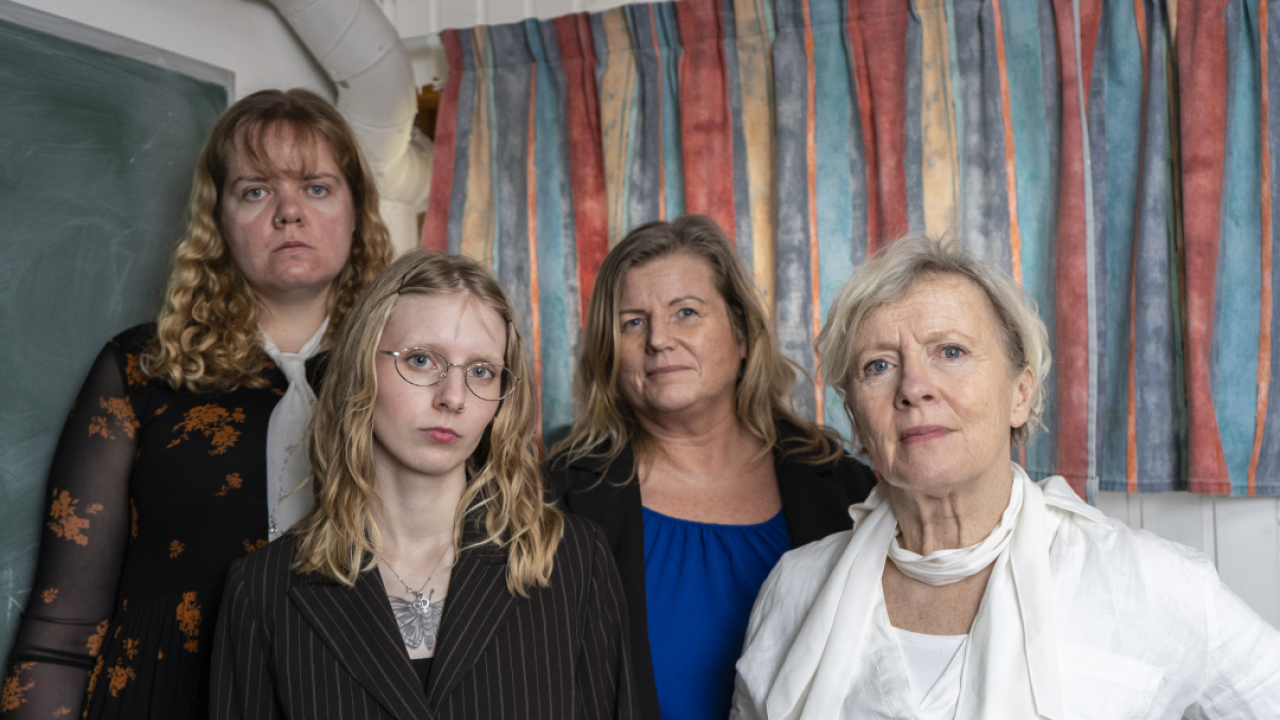
Kalyanjit Das: sitar & Suvrat Apte.: tabla
English text below:
Klassisk nordindisk musik improviseres inden for et bestemt modalsystem (kaldet en raga), der fastlægger grundlæggende skalaer, figurer m.v. Melodiinstrumentet – her den indiske sitar - starter i et roligt og arytmisk forløb, der gradvist vokser i intensitet og hastighed. Herigennem præsenteres lytteren for de grundlæggende toner og melodiske figurer i den valgte raga. Efter et længerevarende improviseret forløb slutter håndtrommerne - tabla - sig til melodiforløbet, hvorefter et tæt og stærkt rytmisk markeret forløb udvikles i samspil mellem de to solister.
Sitaren er et lutinstrument med et større antal strenge (som regel 18-21). Normalt bruges 6-7 strenge som melodistrenge, der anslås med højre hånd og ”stemmes” (forkortes/forlænges ved hjælp af bånd); derudover har sitaren et antal medklingende strenge, der ikke anslås, men som farver musikkens klang og understreger den indiske musiks modale karakter. Håndtrommerne – tabla – består af et sæt at to stemte håndtrommer, der anslås med alle ti fingre ved hjælp af avancerede og raffinerede teknikker.
Sitarspilleren Kalyanjit Das er søn af den store sitarmester Pandit Kushal Das, der besøgte os i senest i 2005. Kalyanjit har naturligvis fået undervisning hos sin far og en række andre mestre. Han har i de senere år turneret selv både i Indien og i USA og Europa og er nu selv en moden mester med egen personlighed og musikalitet. Han har besøgt os en enkelt gang tidligere (i 2018).
English text:
The Indian sitar, a stringed instrument revered for its rich tonal qualities and cultural significance, stands as one of the most iconic symbols of Indian classical music.
The sitar is a long-necked instrument with a gourd-shaped resonating chamber, typically crafted from teak wood and a dried pumpkin gourd. Its structure is both intricate and delicate, featuring several components that contribute to its unique sound.
The sitar is predominantly used in Hindustani classical music, with its playing technique being both complex and expressive. The player sits cross-legged, holding the instrument at a slight angle, with the gourd resting on the player’s lap or foot.
The sitar typically has 18-21 strings, divided into three categories: playing strings (usually 6-7), drone strings (chikari), and sympathetic strings (tarab). The sympathetic strings run beneath the main playing strings and resonate sympathetically, adding a shimmering, ethereal quality to the music.
Kalyanjit Das was born in a highly enriched musical family of Kolkata, Kalyanjit is one of the brightest young sitarists in the field of Indian Classical Music. Maintaining the true heritage of Hindustani Classical Music, his aesthetical approach along with resonant power and delicate intricacies with the rhythm naturally captivate the listener.
Kalyanjit represents the fourth generation of his family as a Musician. His great-grandfather Late Shri Bimal Chandra Das was an ‘Esraj’ player. His grandfather Shri Sailen Das learnt Sitar from Late Pt. Laxman Bhattacharya of the Bishnupur Gharana and then from Late Pt. Ravi Shankar. His father, one of the greatest Sitar maestros across the globe, Pt. Kushal Das learnt from Shri Sailen Das, Shri Santanu Das (Pt. Das’s Uncle), Pt. Sanjoy Banerjee, Late Pt.Ajoy Sinha Roy, Late Pt. Manas Chakraborty and Late Pt. Ramkrishna Basu. Kalyanjit’s maternal grandfather Late Shri Jugal Kishore Sarkar was an established tabla maestro, one of the senior students of Late Ud. Keramatullah Khan.
Kalyanjit started learning the sitar at the age of three under the guidance of his father Pt. Kushal Das, and continues his rigorous and intensive talim under him. Kalyanjit also receives training in advance sitar techniques and art of music-making from Pt. Sanjoy Bandopadhyay. His mother Smt. Sujata Das initiated him in vocal training at a young age and now he also receives guidance from Ustad Rashid Khan as well. He is cared about the different Talas, Layas & their variations by Sri Biplab Bhattacharya, Pt. Subhankar Banerjee, & the famous Tabla Wizard Pt. Shankar Ghosh.
Kalyanjit started playing solo concerts from a young age and has also performed duet-sitar recitals with his father Pt. Kushal Das in India as well as abroad.






